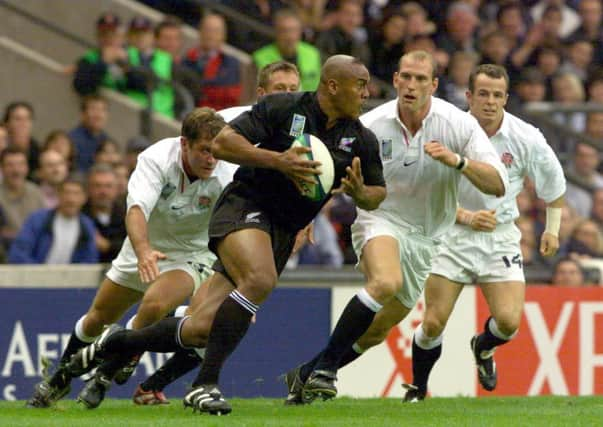‘Global superstar’ Lomu inspired millions around world


The retired New Zealand wing’s passing at the age of just 40 was announced in the early hours of yesterday morning, leaving fans across the globe shocked.
Lomu, who scored 37 tries in 63 Test matches, had suffered from health problems since his retirement from the game in 2002 due to a rare kidney disease. He died after suddenly collapsing just hours after returning from a trip to Dubai.
Advertisement
Hide AdAdvertisement
Hide AdThe Auckland-born former Cardiff Blue is best remembered for his impact on the 1995 Rugby World Cup, when having gone into the tournament with only two caps to his name he scored seven tries, including four in a devastating semi-final display against England.
Former New Zealand captain Fitzpatrick said: “He was the first global superstar. Everyone wanted to be Jonah Lomu. The way the game changed was because of the way he played. He will go down as one of the greatest.”
England attack coach Mike Catt was the man Lomu famously trampled over during his semi-final blitz but he paid his own heartfelt tribute.
“I’m massively sad but the legacy he’s left is incredible,” said Catt. “He’s inspired millions of people around the world to watch the sport and start playing. He changed rugby union during the 1995 World Cup.
Advertisement
Hide AdAdvertisement
Hide Ad“His ability to move 18 stone was amazing. He didn’t want to run through people every time, but he did have that ability and his footwork and speed off the mark was second to none, you just couldn’t get near the guy. But if he needed to run through four of you he could.”
Lomu was first spotted by New Zealand’s schoolboy selectors whilst playing as a back-row forward for Wesley College in his native Auckland but was put on the path to stardom when he switched position to the wing.
He played for several teams in his homeland – Auckland Blues, Chiefs and Hurricanes, North Harbour, Counties Manukau and Wellington – and he played 10 matches for Cardiff Blues.
He retired from the game in 2007, the year he was inducted into the International Rugby Hall of Fame. He also joined the IRB Hall of Fame four years later.
True sporting great: Page 11